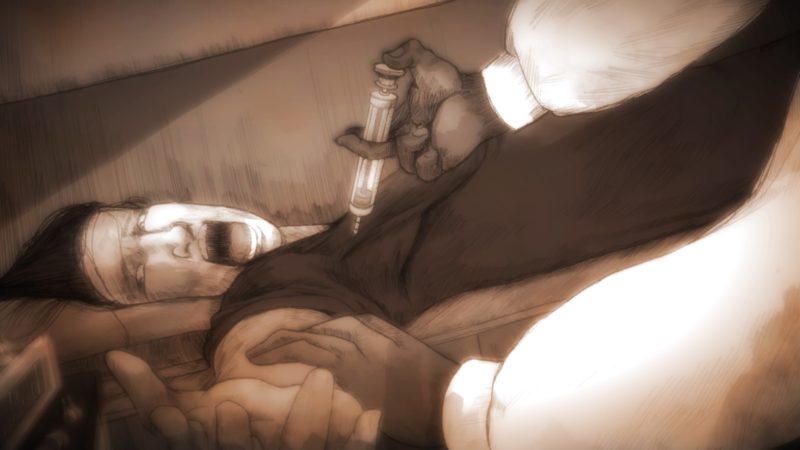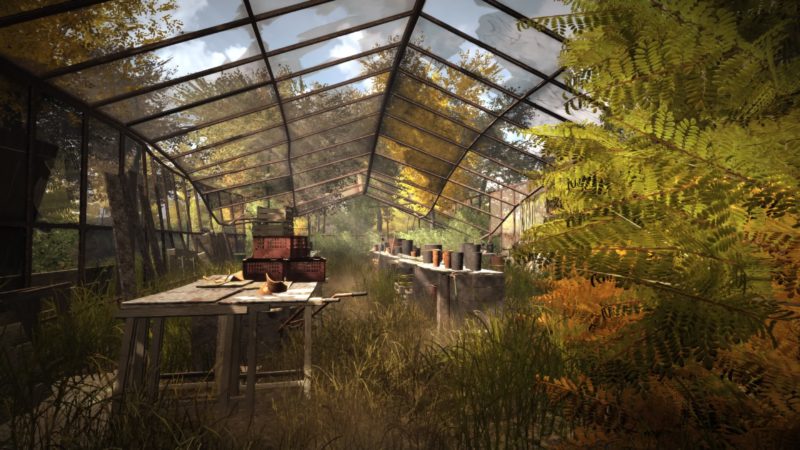The Town of Light is a psychological horror adventure game developed by Italian developer, LKA, originally released on PC, and recently released for consoles. The game is set in a mental hospital in Tuscany, Italy called Volterra. You take on the role of Renée, a woman who was a patient at the asylum while she was a young girl in the 1940’s. Most of the game’s events take place in the modern ruins of the asylum, with occasional flashbacks to the asylum as it was during Renée’s time as a patient.
The Town of Light is far from a traditional horror game. Straying away from traditional, supernatural monsters and jump scares, LKA instead sought to plunge the player into the harsh reality of the treatment of mentally ill patients during the early-to-mid 1900’s. As you progress through the game, you’re faced with Renée’s memories of her experiences in the asylum, ranging from being strapped to a bed for days at a time, to a forced abortion when the nurses discover she’s pregnant. The disturbing reality of her ongoing treatment is certainly enough to cause discomfort, and LKA did an excellent job in creating a narrative that truly leaves a psychological impact on the player.
Unfortunately, the game ends up more like an ‘interactive’ history exhibit rather than an actual game. Aside from moving throughout the asylum and interacting with a few objects every now and then, there isn’t much to do in the game other than watching and soaking everything in. Aside from the many cut scenes, there are additional moments where Renée is piecing together her past, and you’re forced to stop progress and listen. This often gives a frustrating sense that you’re not really accomplishing anything, and instead are simply walking through a story and nothing more.
The few moments where you are forced to interact with the environment are hindered in a number of ways. The first, glaring issue is with the technical aspects of the game. The movement is clunky and slow, and it takes forever to make your way throughout the asylum. The cursor to interact with objects is small and hard to notice, making interacting with the right object difficult at times. In addition, I also ran into framerate problems on occasion. While this doesn’t end up effecting your gameplay, it can take away from the atmosphere that the game tries so hard to create.
In terms of the actual design for the ‘puzzles’ or necessary interactions needed to progress, LKA misses the mark. Points of progression can be hard to find, and even when you do reach them, some of them can only be triggered by interacting with certain objects. Many of those objects in the environment that you must interact with are so inconspicuous that you’d hardly find them without inspecting every inch of a room or ward. The game leaves you mostly to your own devices to find these points and trigger objects; while they do give some hints, these are often vague and unhelpful, mostly pointing you to the general area of the asylum that you need to go to.
The content of the story itself is one of the game’s redeeming qualities. The story is captivating, and the gruesome details of Renée’s ongoing treatment will certainly capture your attention for the duration of the game. Renée’s story is supplemented with various medical notes, pictures and diagrams that reflect actual material from mental asylums at the time of Renée’s treatment. These all provide plenty to chew on as you make your way through the asylum, and add to the lasting effect that the narrative content will have on the player psychologically.
For all of the game’s technical shortcomings, LKA’s unique take on the horror genre through the little-covered topic of the treatment of mentally ill patients in the early 1900s makes for a unique gaming experience. Well, I should say a unique experience, because it really isn’t much of a game at all. In considering both the failures of the game, as well as its unique story content and the lasting effect it had on me upon completion,
I think a 5/10 would be a fair rating for this game. If you really enjoy a good story, and can stomach the harshness and horror of reality, then this game might be worth a try. But if you need to be constantly engaged in a game and have a feeling of accomplishment throughout, The Town of Light may not be for you.
Watch The Town of Light Launch Trailer:
The Town of Light is now available for Xbox One, PS4 and PC through the official website and Steam.
PS4 Review
-
Overall Score - 5/105/10












More Stories
Horizon Journey Review for Steam Early Access
Rayman: 30th Anniversary Edition Review for PlayStation 5
GTA Online this Week Features Continued Lunar New Year Celebrations, Increased Sales for Street Dealers, Biker Bonuses, Plus More